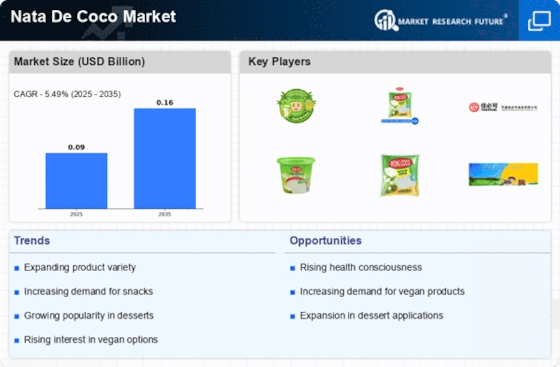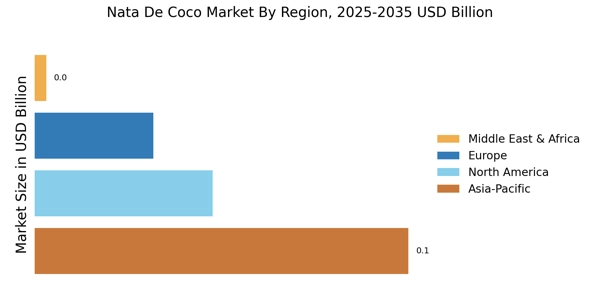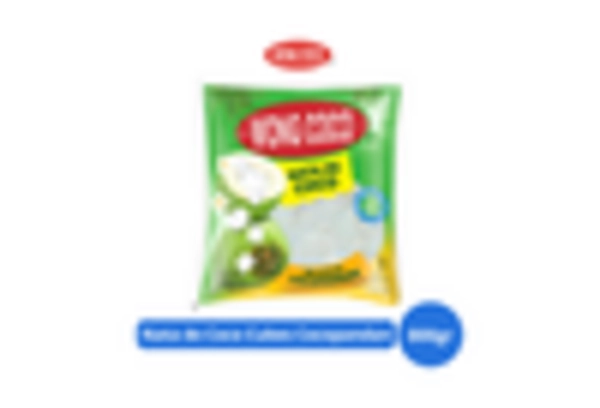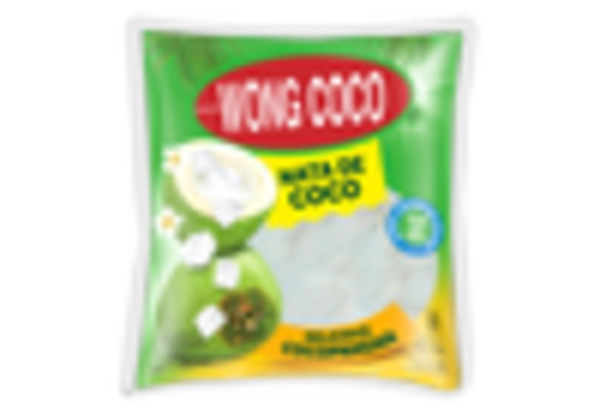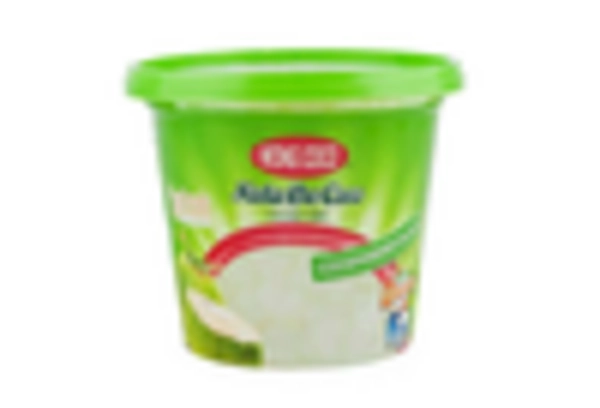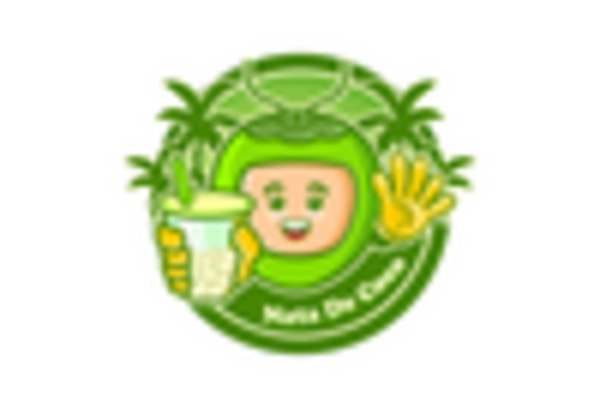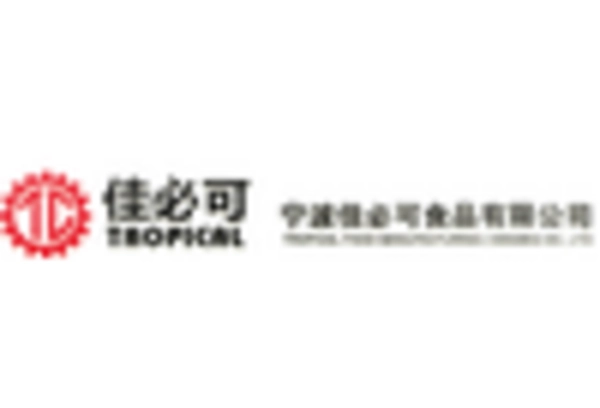Growth of the Snack Food Segment
The Nata De Coco Market is experiencing growth within the snack food segment, as consumers increasingly seek healthier alternatives to traditional snacks. Nata De Coco Market, with its chewy texture and unique flavor, is being marketed as a nutritious snack option. Market analysis indicates that the demand for healthy snacks is on the rise, with consumers willing to pay a premium for products that offer both taste and health benefits. This trend is particularly evident among younger demographics, who are more inclined to explore innovative snack options. As a result, manufacturers are likely to develop new snack products featuring Nata De Coco Market, thereby expanding its presence in the Nata De Coco Market and catering to the evolving preferences of health-conscious consumers.
Increased Awareness of Health Benefits
The Nata De Coco Market is benefiting from heightened awareness regarding the health benefits associated with Nata De Coco Market. This product is low in calories and high in fiber, making it an appealing choice for health-conscious consumers. Research suggests that the consumption of Nata De Coco Market can aid in digestion and promote gut health, which aligns with the increasing focus on wellness and preventive health measures. As consumers become more informed about the nutritional advantages of incorporating Nata De Coco Market into their diets, the market is likely to see a surge in demand. Furthermore, the rise of social media and health influencers has played a pivotal role in disseminating information about the health benefits of Nata De Coco Market, thereby enhancing its visibility in the Nata De Coco Market.
Rising Demand for Plant-Based Products
The Nata De Coco Market is experiencing a notable increase in demand for plant-based products, driven by a growing consumer preference for healthier and sustainable food options. As more individuals adopt vegetarian and vegan lifestyles, the appeal of Nata De Coco Market, which is derived from coconut water, becomes more pronounced. This trend is supported by data indicating that the plant-based food market is projected to grow significantly, with a compound annual growth rate of over 10% in the coming years. The versatility of Nata De Coco Market in various culinary applications, from desserts to beverages, further enhances its attractiveness in the market. Consequently, manufacturers are likely to expand their product lines to cater to this rising demand, thereby bolstering the Nata De Coco Market.
Sustainability and Eco-Friendly Practices
The Nata De Coco Market is increasingly influenced by sustainability and eco-friendly practices. As consumers become more environmentally conscious, there is a growing demand for products that are produced with minimal environmental impact. Nata De Coco Market, being a natural product derived from coconuts, aligns well with this trend. Manufacturers are likely to adopt sustainable sourcing and production methods to meet consumer expectations. Additionally, the emphasis on reducing plastic waste has led to a rise in the use of Nata De Coco Market as a natural ingredient in packaging solutions. This shift towards sustainability not only enhances the appeal of Nata De Coco Market but also positions the Nata De Coco Market favorably in a competitive landscape where eco-consciousness is becoming a key purchasing criterion.
Expansion of Food and Beverage Applications
The Nata De Coco Market is witnessing an expansion in the range of food and beverage applications for Nata De Coco Market. Traditionally used in desserts, this ingredient is now being incorporated into a variety of products, including smoothies, salads, and even savory dishes. This diversification is indicative of a broader trend within the food industry, where innovation and creativity are paramount. Market data indicates that the inclusion of Nata De Coco Market in beverages has gained traction, with several brands launching new products that highlight its unique texture and flavor. As manufacturers continue to explore novel applications, the Nata De Coco Market is poised for growth, appealing to a wider audience and enhancing consumer interest.


